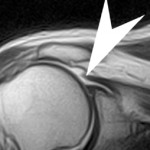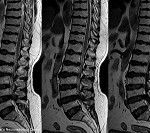Magnetic Resonance Imaging (MRI) is a state-of-the-art imaging procedure that produces very detailed pictures of internal body structures. MRI is used to identify tumors, neurological problems, orthopedic injuries, blood vessel flow, and other medical conditions. Our MRI machine is one of the most technically advanced available on the market today. It is capable of producing high-resolution, digital images of any body part, including the brain, internal organs, arms, legs, and spine. The images are sent to a computer where they can be enhanced to show more detail.
Patients need to remove metal objects from their bodies, such as jewelry, dentures, and eyeglasses. Patients may receive a relaxation medication or contrast dye before the images are taken. Patients are asked to remain motionless while the images are taken. MRI is a painless procedure. Learn More To date, there are no known adverse side effects of MRI.
The scanner has full approval of the U.S. Food and Drug Administration (FDA). MRI images are produced using magnetic field and radio waves unlike x-ray equipment that uses radiation to obtain images. The MRI examination is generally painless and causes little or no discomfort to patients.
How Do I Prepare For My MRI?
Patients should be aware of any metal implanted inside of their body and inform the Radiologist and MRI technologist of any implants prior to being scanned. Patients may eat regularly before an exam, and as soon as the usual 30 to 60 minute scan is completed, patients may return to their normal activities.
We recommend that patients wear loose, comfortable clothing such as a jogging suit. Metal objects such as keys, watches, jewelry, dentures, credit cards and other metallic belongings should be left at home or with whoever accompanies the patient. Metal clips, fasteners, buttons, locks, eyelets, etc. on clothing may interfere with the exam. No deodorant or cosmetics should be worn during the exam.








